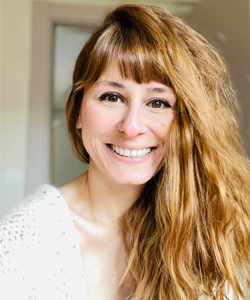Learn more about HRI’s Campus Fellowship Program, which supports a cohort of faculty and graduate students through a year of dedicated research and writing in a collaborative, interdisciplinary environment.
What is unique about your research on this topic?
Located at the intersections of Anthropology, Memory Studies, and Trans Studies, my work focuses on everyday narratives and practices of mutually formed mother-and-daughter relationships among trans women who live in Istanbul, Turkey. I mainly focus on memory and its circulation among trans mothers and daughters to explore how cis/hetero-patriarchal entanglements between family, temporality, language, and inheritance can be challenged through trans kin and world-making practices.
What drives your interest in this research?
My research reflects ten years of academic work on exploring trans forms of mother and daughterhoods and 16 years of activism within the LGBTI+ movement in Turkey.
In addition to the inspiring literature on transnational feminism and trans/queer color of critique, I should admit that one of the significant points that drive my interest in this research is my rage towards cis/hetero regimes of existence that limit the potentials of our lives and my admiration for collective archives of trans/queer activism.
Experiencing and learning gendered memories and histories of politics that control our bodies, identities, families, temporalities, spaces, and languages create rage and frustration. But those moments of rage and frustration also carry the potential to undo the limits/norms of being, becoming, and relating.
Listening and exploring trans approaches to lineage, kin, and world-making opened spaces for me where rage and frustration can meet and co-exist with joy and curiosity, where unique ways of engaging with time, language, memory, and one another take place.
How has the fellowship seminar impacted the way you approach your research?
HRI is home to a generous and supportive community of scholars from different disciplines. The HRI fellowship gave me the time and space to focus on my research and writing and also made me a part of a collective that listens, engages, and gets curious together during bi-weekly seminars with faculty and graduate students. As we listened to and read each other’s work, connections across geographies, histories, life stories, and disciplines have emerged with curiosity and joy, creating fruitful spaces to think, talk, explore, and write.
